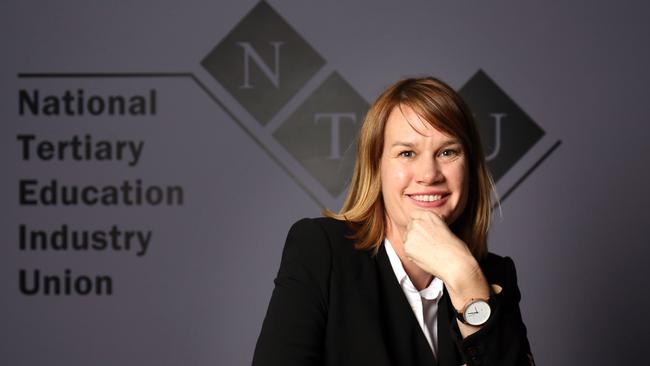Job-saving deal will give university workforce a say in their future

Unfortunately, giving the university workforce a say in their own future sticks in the craw of some vice chancellors. Especially those hellbent on avoiding scrutiny of their finances.
That is ultimately self-defeating because the framework represents a constructive and fair way forward. Few enjoy grappling with difficult decisions, but reality forces stark choices. COVID-19 has melted away more than $4.5 billion of our sector’s revenue. And the federal government has stubbornly refused to either extend JobKeeper to the university workforce or provide a funding package for the sector.
As a union we could have ignored this reality and simply sheeted the blame home where it belongs, with the federal government. But just playing the blame game would have meant passively accepting some 30,000 job losses. The human consequence of this is derailed careers, broken relationships, substance abuse, and self harm. Many people who lose jobs in a downturn never regain them.
Read more: Eight unis reject union deal | Why we need overseas students | Victoria’s $350m uni boost | Independent VET enrolments plummet | Five steps to cure higher education
For that reason, we took the tough decision to negotiate a framework with a panel of vice-chancellors. In return for a temporary, one-year pay reduction of between five and 15 per cent, for some staff at the most heavily affected universities, the vice-chancellors agreed to a raft of important commitments.
Participating universities cannot involuntarily stand employees down without pay. They must also reduce non-staff costs (such as building works) and executive salaries before any other salaries can be reduced. In addition, superannuation and leave will be accrued at the standard rate, displaced casual and fixed-term staff will be prioritised for new work, and redundancies will only happen when a university can explicitly prove there is no work.
As a package these measures could save 12,000 jobs across our universities.
But the kicker in the framework is that staff play a central role in crafting and implementing it. Any university that wishes to participate must submit its financial statements to a national expert panel of union and management representatives. If a university can satisfy the national panel of its financial need, a local campus plan can be implemented with the oversight of a similar joint committee.
And it’s this that I believe has led to Melbourne, Sydney, Newcastle, UTS, and Edith Cowan universities opting out of the framework.
They are seeking to avoid scrutiny of their finances. We know already that the universities of Sydney and Melbourne are grappling with a half billion dollar a year exposure to the international student market. After spending lavishly on building programs, these universities are now unwilling to open their books, presumably for fear it may reveal poor risk management.
I urge the leaders of these universities to reconsider their position. A few short term blushes about high octane management practices may be uncomfortable, but wholesale sackings would be callous and self defeating. A job protection framework exists. It has been designed to protect careers and livelihoods by sharing the pain in the fairest way possible. Rejecting this framework to save a little short term embarrassment does not stand up ethically.
Universities have to realise that inspired teaching and penetrating research are the real markers by which they will be judged. Keeping as many staff employed as they possibly can will allow universities to resume this mission as we emerge from the crisis.
Ultimately, we need the federal government to step in with an emergency funding package. The Commonwealth has abandoned universities at the very moment their revenues have been demolished. But, right now, rallying around the framework represents the best way forward together.
Dr Alison Barnes is president of the National Tertiary Education Union.



The job protection framework proposed by our union gives the workforce a direct say on how to save thousands of university careers and livelihoods.